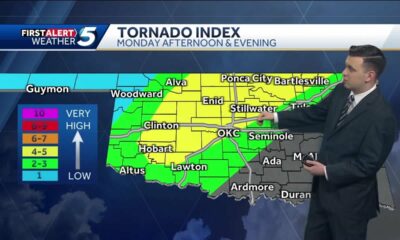News from the South - North Carolina News Feed
5 on Your Side: Consumer Reports shares the risks of vacation payment options
SUMMARY: Many travel sites now offer “buy now, pay later” (BNPL) loans, allowing consumers to split vacation costs over time. While popular, these loans come with risks. BNPL options often lack consumer protections, making refunds difficult if trips are canceled. Some plans offer interest-free payments, but others charge high interest rates, leading to costly purchases. Additionally, if a trip is canceled, travelers may still owe payments. Experts recommend using credit cards for travel bookings, which offer better consumer protections, or saving in advance to avoid debt. Always read the fine print before committing to BNPL loans.

“Buy Now, Pay Later” loan options have been growing in popularity, especially for travelers. Consumer Reports shares red flags and potential pitfalls that experts warn consumers of.
News from the South - North Carolina News Feed
‘Our Wave’ Co-founder on support spaces for sexual assault survivors
SUMMARY: In recognition of Sexual Assault Awareness Month, North Carolina Governor Josh Stein announced a new sexual assault cold case unit to support survivors, with trauma-informed investigators dedicated to solving cases. Co-founder of Rwave, Brendan Michaelelsson, shared how their platform provides safe, anonymous spaces for survivors to share their stories and access resources. Since its launch in 2018, Rwave has helped survivors from 67 countries and all 50 U.S. states. Michaelelsson emphasized the importance of confidential platforms and suggested creating cultures of respect and safety in various environments. Rwave encourages volunteers and allies to get involved through their website.

April is Sexual Assault Awareness Month. ‘Our Wave’ Co-founder and CTO Brendan Michaelsen joined ABC11 to talk building support spaces for survivors and other resources.
Download: https://abc11.com/apps/
Like us on Facebook: https://www.facebook.com/ABC11/
Instagram: https://www.instagram.com/abc11_wtvd/
Threads: https://www.threads.net/@abc11_wtvd
TIKTOK: https://www.tiktok.com/@abc11_eyewitnessnews
News from the South - North Carolina News Feed
Juvenile offenders often denied parole in NC prisons even as adults
A decade after a federal judge ordered North Carolina to adopt a plan to give juvenile offenders serving life sentences a “meaningful opportunity” for parole, a lawsuit making its way through the court system says the state has failed to follow through.
Earlier this month a judge denied the state’s motion to dismiss the suit, which was filed in 2023, noting “concerning” accounts of omitted and false information in plaintiff Brett Abrams’ parole file.
Abrams, 56, is serving a life sentence for murder at the minimum security prison in Hillsborough. He leaves prison five days a week to work a full-time job at a meat packing plant. In his 40 years of incarceration, he’s accrued 11 infractions, the last being in 2005.
On paper, he seems like a great candidate for parole. But the four-person commission that has sole discretion over parole decisions in North Carolina has denied him every time since he first became eligible in 1993.
Abrams has undergone two parole reviews since the state implemented its new process for juvenile offenders — colloquially known as the “Hayden Plan” for the case Hayden v. Keller that spurred its creation.
However, he continues to be denied his freedom.
A brutal killing
In 1983, Abrams stabbed and killed his 20-year old neighbor at her parents’ home after she confronted him for secretly watching her sunbathe. Abrams was 14 at the time of the slaying, and at 15 he was charged as an adult and sentenced to life imprisonment after pleading guilty to second-degree murder.
Depositions from Abrams’ lawsuit revealed his parole file had omitted crucial information that might have helped with his release. It also contained inaccurate information, including that he had an open homicide case against him for the 1982 death of his brother. In reality, the Iredell County Sheriffs’ Office had ruled the death an accident and closed the case.
“We saw in his profile pretty significant, very material mistakes that included misleading information, lies, things that were simply not true which we believe are so significant that it’s a sort of evidence in itself that the system is broken,” Abrams’ attorney, Jake Sussman, told Carolina Public Press.
And despite Abrams seeking psychological counseling and treatment based on the recommendation of the Parole Commission in 2018, those records were not included in his 2020 review.
“One would assume accurate and comprehensive summaries with relevant information would be essential where commissioners vote on more than 100 cases a day,” Judge Richard Myers wrote in his April 2 ruling.
The court cannot reverse the decisions made by the state’s Parole Commission, meaning the legality of Abrams’ continued incarceration is not being questioned. But Myers determined it is “within this court’s purview to review for Eighth Amendment violations,” as proven in Hayden v. Keller.
“What we’ve asked the judge to do is to find that the current system is unconstitutional as it applies to Mr. Abrams, and therefore as it would apply to all of the juvenile offenders, and develop a plan to actually have a review process that works,” Sussman said.
Juvenile offenders at mercy of the system
Decades of judicial rulings have given states plenty of discretion over how to handle the parole process.
North Carolina’s system has changed several times, and starting in 1994 the state eliminated parole altogether in favor of a different system called “structured sentencing,” which sets a minimum sentence and allows the Parole Commission to set the terms of release for felons once they reach that mark.
Those imprisoned prior to 1994 are still subject to the state’s older system, which Sussman described as a “constitutional mess,” particularly for juvenile offenders.
Two U.S. Supreme Court decisions from the 2010s — Graham v. Florida and Miller v. Alabama — resulted in monumental changes for people serving life sentences due to crimes they committed as juveniles. In those rulings, the Supreme Court severely limited states’ abilities to administer life sentences without parole to juvenile offenders, deciding that such actions constituted “cruel and unusual punishment” under the Eighth Amendment.
The logic behind that ruling is that juvenile offenders are more likely to respond to rehabilitation and reform compared to people imprisoned for crimes they committed later in life.
“Research in the area of brain development shows that the brain is not fully developed until about age 25,” explained Erin Fitzgerald, a professor at Elon University who specializes in juvenile justice. “This lack of development makes juveniles more impulsive, susceptible to peer pressure and unable to fully appreciate the consequences of their actions. However, it also makes them more malleable and capable of rehabilitation.”
Justice for juvenile offenders
The Hayden Plan at the center of Abrams’ lawsuit was born out of the precedent set by the Graham and Miller cases.
In 2010, a North Carolina inmate serving a life sentence for sexual assaults he committed as a teenager in the 1980s sued the Parole Commission for not giving him a fair chance to make his case for release.
His name was Shaun Hayden.
Every year after becoming eligible for parole, Hayden would receive the same letter from the commission saying that he had been denied parole, despite never having interacted with them in any way or being notified that he was up for review.
“He didn’t think that was fair, and he was correct,” said Ben Finholt, who was one of Hayden’s attorneys in his lawsuit against the commission. “It was a sham parole system where (the commission) never talked to anyone. They just review documents every year, and if not much changes, then you just get denied every year without them ever talking to you.”
A District Court ruled in Hayden’s favor, citing the U.S. Supreme Court’s decision in Graham v. Florida. The state lost its appeal and in 2018 was directed to implement a new plan for handling parole review for juvenile offenders.
That plan guaranteed juvenile offenders a 30-minute video conference with one of the commissioners, a specialized case analyst and, in the case of denial, a letter detailing why the inmate was denied parole and recommendations for future reviews.
New parole plan, old issues
The new plan hasn’t exactly led to substantive changes, however.
Finholt, who now serves as Abrams’ attorney for his parole review (separate from the lawsuit that Sussman is handling), has had a firsthand account of the Hayden Plan’s shortcomings.
“The parole case analyst in Brett’s case admitted under oath that she did not consider the advocacy letter that I wrote for Brett in 2020, that it was not part of the record and that she had made no changes to her process based on the fact that the person being considered for parole was a juvenile,” he said. “That is explicitly contrary to (the Hayden court’s) holding that people who were kids at the time of the crime are entitled constitutionally to a different process.”
That was one of the reasons Myers, the judge in Abrams’ lawsuit, denied the state’s motion to dismiss the suit.
However, Myers also wrote that it is “still unclear” based on the facts of the case whether the commissioners would have changed their decision on Abrams if the information in his file had been completely accurate.
He declined to rule in favor of either party and ordered more discovery on the matter. When that is completed in June, he may issue a final ruling or set a trial date.
Sussman said that if Abrams wins this lawsuit, he would advocate for a decision-making process that is less arbitrary, such as a rubric or points-based system.
Finholt has also advocated for such a change, and he said it makes sense regardless of people’s opinions regarding parole.
“My personal feeling, based on my long professional experience, is that most of the folks who are up for parole would do just fine outside of prison,” he said. “However, even if you’re a person who disagrees with me on that front, you should still dislike the current process because it’s not informed by any evidence or any data.
“If you’re the kind of person who thinks that most folks should stay inside, you should also be horrified by the fact that these release decisions are being made essentially on people’s guts.”
This article first appeared on Carolina Public Press and is republished here under a Creative Commons Attribution-NoDerivatives 4.0 International License.![]()
The post Arrest of Wisconsin judge ‘escalation’ in Trump-judiciary conflict, Democrats warn appeared first on tennesseelookout.com
Note: The following A.I. based commentary is not part of the original article, reproduced above, but is offered in the hopes that it will promote greater media literacy and critical thinking, by making any potential bias more visible to the reader –Staff Editor.
Political Bias Rating: Center-Left
The content presents a case focused on the rights of juvenile offenders, specifically in relation to parole decisions. The emphasis on rehabilitation, fairness in parole processes, and concerns over the accuracy and fairness of the system reflects a more progressive, or center-left, perspective. It advocates for juvenile offenders’ opportunity for parole based on their potential for reform, which aligns with broader left-leaning views on criminal justice reform and the belief in rehabilitation over punitive measures. The inclusion of legal cases like Graham v. Florida and Miller v. Alabama suggests an alignment with the idea of justice for juvenile offenders in line with constitutional protections. While the tone is not overtly political, the framing of the issues reflects concerns typically associated with progressive criminal justice reform.
News from the South - North Carolina News Feed
Mental health pros worry about possible cuts to 988 hotline funding
SUMMARY: Mental health professionals express concern over potential cuts to the 988 suicide prevention hotline, particularly for LGBTQ+ youth. A leaked budget draft reveals the Trump administration’s proposal to eliminate funding for specialized services. Since its launch in July 2022, the hotline has answered over 219,000 calls, with rising demand for mental health services noted by professionals like Shawn Thomas. The North Carolina Department of Health emphasizes that federal funding is crucial for timely call responses and effective service delivery. Advocates are alarmed, warning that losing this resource would significantly impact vulnerable populations.

Mental health professionals say the 988 hotline is an invaluable resource, and any cuts would affect the strides being made in the state to meet growing demand.
Story: https://abc11.com/post/mental-health-professionals-worry-possible-cuts-988-suicide-hotline-funding/16248556/
Download: https://abc11.com/apps/
Like us on Facebook: https://www.facebook.com/ABC11/
Instagram: https://www.instagram.com/abc11_wtvd/
Threads: https://www.threads.net/@abc11_wtvd
TIKTOK: https://www.tiktok.com/@abc11_eyewitnessnews
-

 News from the South - Missouri News Feed2 days ago
News from the South - Missouri News Feed2 days agoMissouri lawmakers on the cusp of legalizing housing discrimination
-

 News from the South - Alabama News Feed6 days ago
News from the South - Alabama News Feed6 days agoPrayer Vigil Held for Ronald Dumas Jr., Family Continues to Pray for His Return | April 21, 2025 | N
-

 SuperTalk FM5 days ago
SuperTalk FM5 days agoNew Amazon dock operations facility to bring 1,000 jobs to Marshall County
-

 News from the South - Florida News Feed6 days ago
News from the South - Florida News Feed6 days agoTrump touts manufacturing while undercutting state efforts to help factories
-

 Mississippi Today7 days ago
Mississippi Today7 days ago‘Trainwreck on the horizon’: The costly pains of Mississippi’s small water and sewer systems
-

 News from the South - Texas News Feed7 days ago
News from the South - Texas News Feed7 days agoMeteorologist Chita Craft is tracking a Severe Thunderstorm Warning that's in effect now
-

 News from the South - Virginia News Feed6 days ago
News from the South - Virginia News Feed6 days agoTaking video of military bases using drones could be outlawed | Virginia
-

 News from the South - Florida News Feed6 days ago
News from the South - Florida News Feed6 days agoFederal report due on Lumbee Tribe of North Carolina’s path to recognition as a tribal nation













































